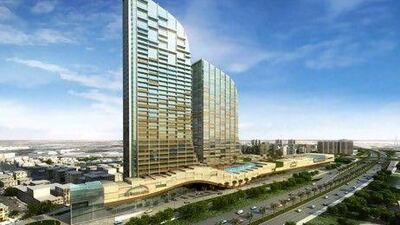After decades in the wilderness, Libya had begun a quick return to the global markets.
A turning point was its payment of US$1.5 billion (Dh5.5bn) in 2008 as compensation to the families of the 270 people killed in the 1988 bombing of a Pan Am flight over Lockerbie, Scotland, and for the 1986 bomb attack on a Berlin disco. After the payment, international sanctions against Libya were lifted.
Global businesses began trying to gain a foothold in one of the largest oil-producing nations in Africa.
Energy companies were some of the first to enter after sanctions were lifted, and the country's business ties with Italy and other European nations quickly strengthened. Libya now produces about 1.4 million barrels of oil per day, sending much of it across the Mediterranean into Europe.
Eni, an Italian oil and gas giant, is one of the biggest foreign investors in the country. Companies in the Gulf have collectively put billions of dollars into Libya in recent years.
Al Maabar, a property developer, entered a joint venture with the Libyan Investment and Development Company in 2008 to build a $375 million project in Tripoli called Al Waha. Gulf Finance House is arranging a $5bn project there called Energy City Libya.
Al Maskari Holding, a family investment group in Abu Dhabi, said in December it was behind a $3bn project to generate electricity in Libya for domestic use and export to Europe.
Libya and the UAE also launched an Dh11bn joint investment fund in December.
One of the closest of the Gulf's business ties with Libya involves Bahrain's Arab Banking Corporation (ABC). Libya's investment authority bought majority control of the wholesale bank in December, and ABC in turn said it was in talks to acquire 49 per cent of Mediterranean Bank in the Libyan city of Benghazi.

